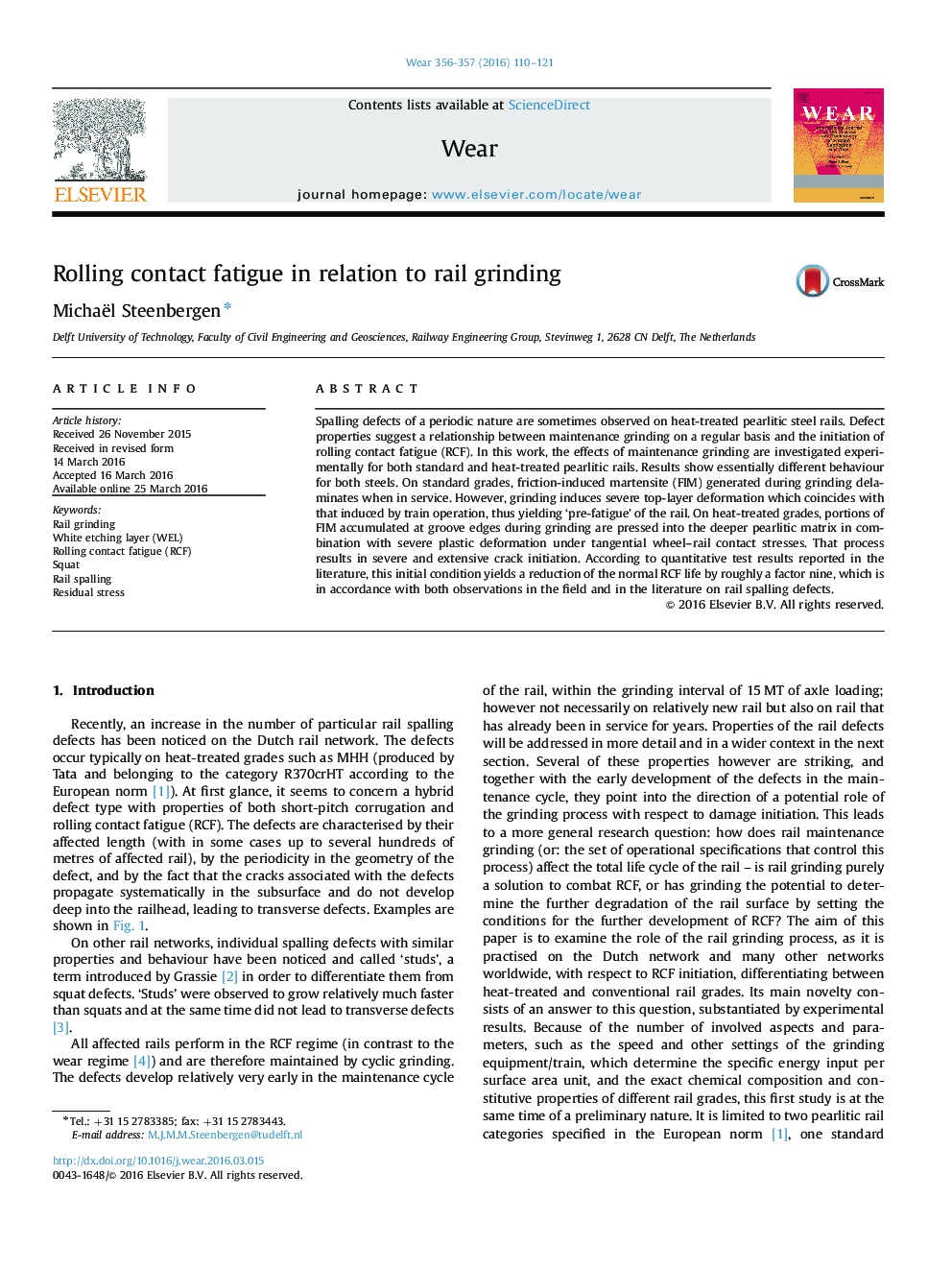| Article ID | Journal | Published Year | Pages | File Type |
|---|---|---|---|---|
| 7004125 | Wear | 2016 | 12 Pages |
Abstract
Spalling defects of a periodic nature are sometimes observed on heat-treated pearlitic steel rails. Defect properties suggest a relationship between maintenance grinding on a regular basis and the initiation of rolling contact fatigue (RCF). In this work, the effects of maintenance grinding are investigated experimentally for both standard and heat-treated pearlitic rails. Results show essentially different behaviour for both steels. On standard grades, friction-induced martensite (FIM) generated during grinding delaminates when in service. However, grinding induces severe top-layer deformation which coincides with that induced by train operation, thus yielding 'pre-fatigue' of the rail. On heat-treated grades, portions of FIM accumulated at groove edges during grinding are pressed into the deeper pearlitic matrix in combination with severe plastic deformation under tangential wheel-rail contact stresses. That process results in severe and extensive crack initiation. According to quantitative test results reported in the literature, this initial condition yields a reduction of the normal RCF life by roughly a factor nine, which is in accordance with both observations in the field and in the literature on rail spalling defects.
Related Topics
Physical Sciences and Engineering
Chemical Engineering
Colloid and Surface Chemistry
Authors
Michaël Steenbergen,
